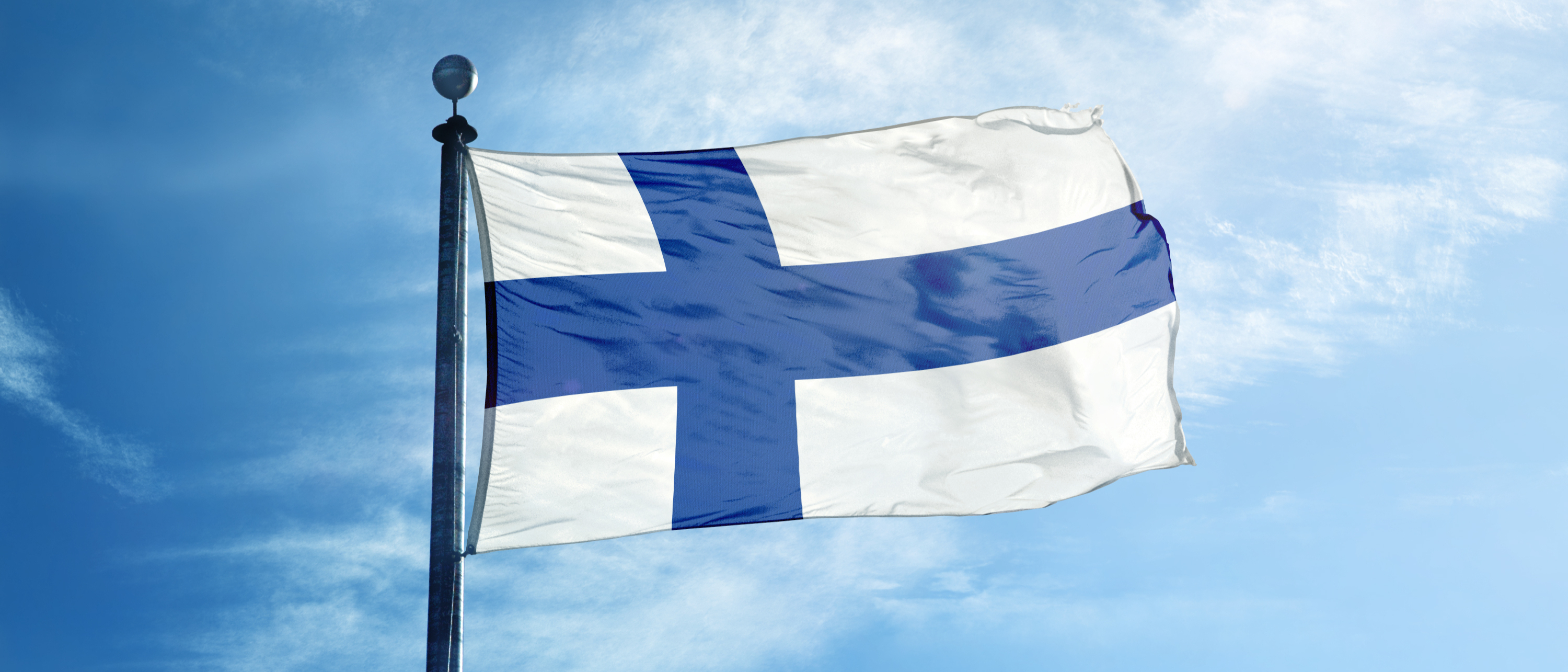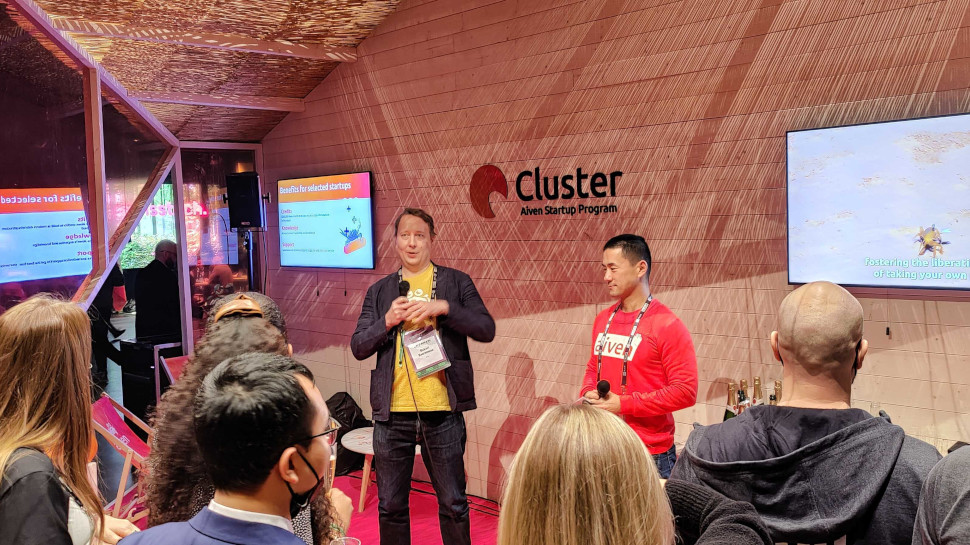The world’s happiest country is deadly serious about technology
Finland is determined to demonstrate its technology prowess to the world

For a country of its diminutive size, Finland tops the world rankings in a disproportionate number of categories; it has the best education system, best public services and highest rate of digital skills. As per the latest United Nations rankings, it’s also the happiest country in the world.
However, like some of its neighbors in the Nordic region, Finland is hoping to add a new title to its collection: global technology powerhouse.
Although the local tech ecosystem is still in its relative infancy, a number of influential companies have emerged from Finland, which is quickly accruing more than its fair share of unicorns (businesses with valuations of more than $1 billion).
TechRadar Pro spoke to a number of these firms in Helsinki in the run-up to Slush 2021, as well as spokespeople from Business Finland, the organization tasked with supporting the country’s best and brightest companies.
The consensus among them, perhaps predictably, is that the Finnish tech scene is too often overlooked and underestimated. They also say local businesses benefit from a unique perspective on competition, which offers an antidote to some of the cultural problems created by the cut-throat Silicon Valley approach.
All for one, and one for all
During our brief time in Finland, we heard from technology companies that focus on a broad range of areas, from cloud, AI and business software to cryptocurrency, gaming and virtual reality. These firms also varied in level of maturity, from month-old startups to established multinationals.
However, despite the lack of commonalities, almost all of them described the same phenomenon: a heightened sense of community, specific to the Finnish business climate.
Are you a pro? Subscribe to our newsletter
Sign up to the TechRadar Pro newsletter to get all the top news, opinion, features and guidance your business needs to succeed!
According to Ilkka Paananen, CEO at Supercell (the company behind Clash of Clans and other popular mobile games), there is much less emphasis on triumphing over rivals in Finland, where competing businesses often collaborate openly.
“We don’t see other Finnish gaming companies as competitors, but rather as members of a family,” he told TechRadar Pro and a group of other publications.
“If one business is successful, it benefits the whole network; a rising tide raises all boats, as they say. Success creates success.”
Oskari Saarenmaa, CEO at open source database company Aiven, described a similar experience. “The tech scene here is very collaborative,” he noted. “We’re not competing with each other so much, which allows people to share what they’re doing, the lessons they’ve learned and how we might all benefit together.”

Separately, we were also told of a local tradition called “talkoot”, whereby people gather together to assist their local community with no expectation of payment in return. The concept seems to extend to the Finnish technology ecosystem as well.
This atypical approach appears to stem from a combination of national pride (we didn’t meet a single Finn who wasn’t eager to tell us about the quality of the local food or sauna) and a shared understanding of the disadvantages local companies face. Hailing from a non-traditional technology hub, Finnish businesses must fight all the harder for recognition on the global stage.
There is somewhat of a paradox at play here; to be successful in business, a certain ruthlessness is required (in addition to a competitive product), but for Finnish businesses, crushing the competition might be antithetical to success. In the face of this dilemma, the Finnish have settled on a form of “co-opetition” that defies convention.
Think big, or not at all
Unlike their counterparts from the US or other larger European nations, Finnish tech firms have no choice but to think big. After all, with a population of just 5.5 million, Finland offers local businesses a comparatively small pool in which to swim.
For this reason, ambitious technology companies are required to embrace internationalism from their conception. As Saarenmaa puts it: “everyone out here is building for a global audience”.
This goes some way to explaining the surge in investment flooding into the country. In 2011, Finnish startups attracted just €102m, but that figure sits at almost €1bn in 2021 - the highest rate of funding per capita in Europe.
Timo Ahopelto, chairperson of Slush, says there will also be a dramatic rise in the number of tech unicorns coming out of Finland, of which there are currently ten (including both Aiven and Supercell). By 2025, he expects this figure to roughly double.
“People talk about the American dream, but it holds way more true in Finland than America.”
Ilkka Paananen, CEO at Supercell
The number of unicorns isn’t a conclusive test of the quality of a country’s tech sector, of course, but it’s a strong bellwether. And it also helps with international recognition.
Asked why Finland is beginning to produce unicorns at an increasing rate, Paananen highlighted the high standard of living, less demanding work culture (his employees rarely work past 5pm) and high penetration of the English language, which he says is attracting the next generation of technology talent to Helsinki.
He suggests the days of US dominance in the technology sector are numbered; Silicon Valley has yielded great innovation, but too many evils, and Finland is ready to offer up an alternative model.
“People talk about the American dream,” he said. “But it holds way more true in Finland than America.”
Core values
As Finland continues to pour funds into developing its network of startups and technology companies, one of the main questions will become whether or not the country is able to stay true to the values that have defined this first generation of success stories.
Business Finland says the “clan” mentality is stitched into the local DNA and, by extension, local businesses. But if the country succeeds in winning international acclaim and establishing itself as a technology powerhouse, it may no longer be possible (or constructive) to maintain this highly-organized and collaborative structure.
Regardless of whether talkoot is traded in for a more traditional approach to empire building in future, however, Finland appears to be approaching a tipping point that will almost certainly bring about a wave of technology innovation.
- Starting your own venture? Here's our lists of the best productivity software, best collaboration software and best project management software around

Joel Khalili is the News and Features Editor at TechRadar Pro, covering cybersecurity, data privacy, cloud, AI, blockchain, internet infrastructure, 5G, data storage and computing. He's responsible for curating our news content, as well as commissioning and producing features on the technologies that are transforming the way the world does business.